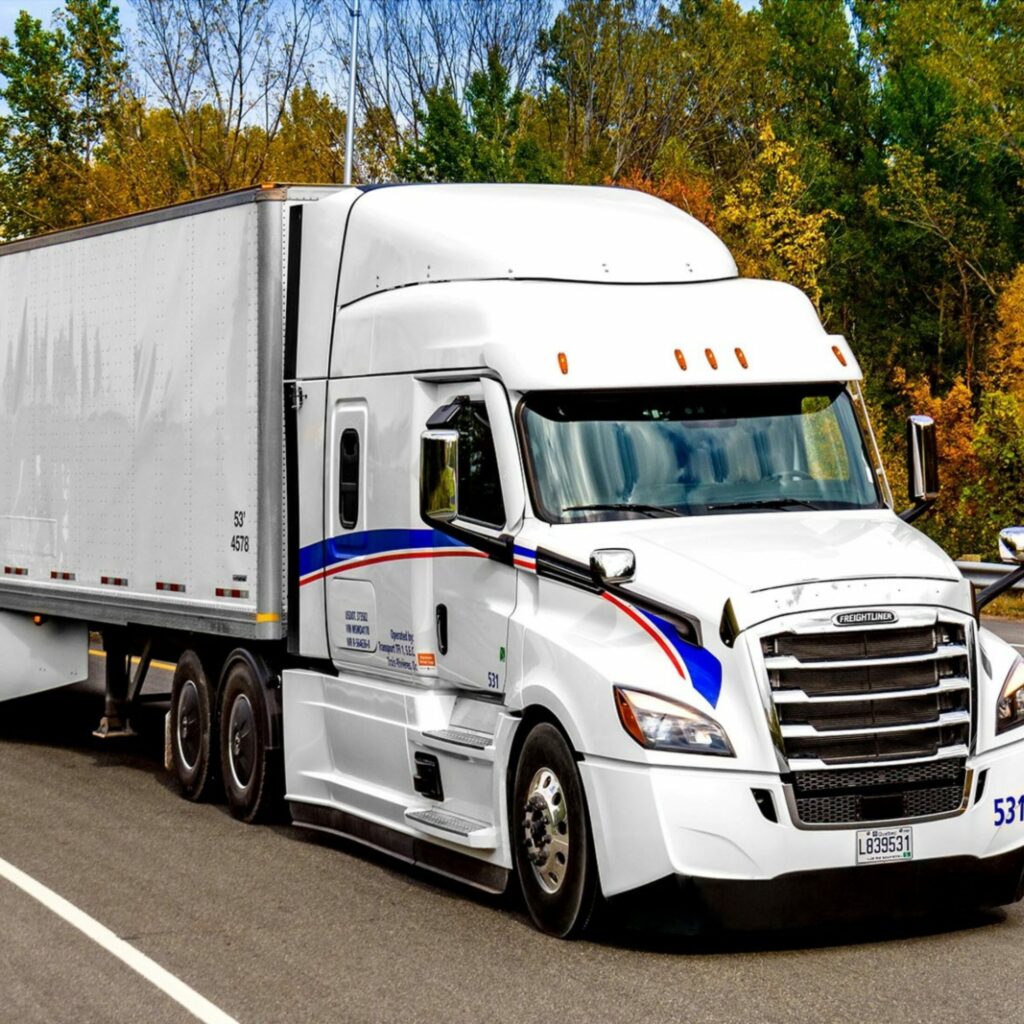Cost control, efficiency the name of the game for TFI International
TFI International saw revenues and net income slide in the third quarter, largely due to softer freight volumes and the divestiture of its U.S. truckload business, CFI, last August.
Total revenue slid from $2.24 billion (all figures USD) in Q3 2022 to $1.91 billion this year. Profit came in at $133.3 million, compared to $245.2 million a year ago. Revenues were down a respective 12% for the package and courier segment, 15% for LTL, and 25% for truckload, while logistics revenue was flat. The company indicated much of the truckload decline was due to last year’s sale of CFI.
“We executed well during this stretch of weaker demand as our team was able to quickly adapt to changing market conditions while further streamlining operations,” chairman and CEO Alain Bedard said in a press release.
Speaking to analysts on an earnings conference call, Bedard said he was proud of the company’s “solid execution” despite weaker market conditions in the quarter. He expects market conditions to improve slightly in the fourth quarter compared to Q3.

“We anticipate 2024 is probably going to be a transition year,” he said, when asked where the industry is in the current freight cycle, citing the U.S. election and war in Europe as unknowns. “I’m convinced 2024 will be a better year than 2023 for us, but it’s hard to have a good feel for how good this is going to be.”
In terms of U.S. truckload, Bedard said the segment is at the bottom, but how long it will take to get up off the mat is unknown.
The Yellow effect
“We are on the floor, it’s just a matter of how fast we can get up from the floor,” Bedard said.
While the company’s TForce Freight U.S. LTL division saw volumes increase after the demise of competitor Yellow Corp., rates didn’t improve as a result of their exit from the market. The focus at TForce Freight continues to be on reducing costs, and Bedard said management is getting the tools they need to do so.
“The fact that a significant player that was probably a very low-margin player has gone from the market, I think bodes well for the LTL industry,” he said. “But notwithstanding that, our focus with TForce Freight is on cost. We need to be leaner and meaner and that’s what we’re doing.”
Individual terminal managers are being armed with financial tools so they can track performance metrics and adjust faster, much as they do in Canada, “so they can start doing a better job managing costs,” Bedard said. “Right now the excuse is, ‘I don’t know. I don’t have the information so I can’t do anything about it.’ That excuse will be gone.”
Bedard said that division has improved shipment densities, making more deliveries with fewer miles between them. That work continues, he said, adding it requires a shift in philosophy and better collaboration between sales and operations.
Operational-oriented company
“Work needs to be done between the sales team and operations team, so the sales team knows what we are looking for,” he explained. “TForce Freight used to be a sales-oriented company when it was owned by UPS. When it’s owned by TFI it’s not a sales-oriented company, it’s an operational-oriented company. Our operations are working with sales to say, ‘This is what we want, the area, the type of freight. Don’t bring me something I don’t want. I’m not a Jack of all trades, master of none anymore.’”
That division also saw wage increases jump after inking a new five-year deal with the Teamsters union that includes a 5% increase in the first year. That will put further pressure on management to reduce other costs through improved efficiencies, Bedard acknowledged.
“We have to be more efficient, do more with less,” he said.
There is also work to be done in Canada, where TFI added Kindersley Transport and its welcomed volume, but needs to work on margins to bring them more in line with those of TFI’s other Canadian LTL businesses.
So far this year, TFI International has made 11 acquisitions at a cost of about $100 million. It is ready to do more next year.
“I think we’re going to do more than that in 2024,” Bedard predicted. The company announced a private placement that will give it “more dry powder” to execute on acquisitions, and Bedard said the likelihood of making a large purchase next year is about 65% to 75%. “Our pipeline is really strong in terms of M&A,” Bedard said.
Have your say
This is a moderated forum. Comments will no longer be published unless they are accompanied by a first and last name and a verifiable email address. (Today's Trucking will not publish or share the email address.) Profane language and content deemed to be libelous, racist, or threatening in nature will not be published under any circumstances.